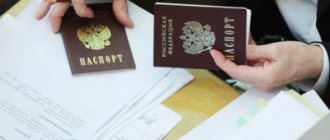Where to start privatizing an apartment in 2018, procedure and step-by-step instructions for everyone who wants to carry out this procedure on their own - read further in the article.
Citizens living in municipal apartments under social tenancy agreements have the right to privatize them, in accordance with the Law of the Russian Federation No. 1541-1 of July 4, 1991 “On the privatization of housing stock in the Russian Federation,” that is, to become home owners and register their ownership rights. Everyone can do this only once in their life, and children who participated in privatization together with their parents will be able to exercise their legal right once again after reaching the age of 18. According to current legislation, privatization is now free, but only until March 1, 2017 (according to Federal Law No. 19 of February 28, 2016). There is no talk of extending the deadline yet again.
What is apartment privatization
Privatization of an apartment is a free Federal Law of February 22, 2021 No. 14-FZ “On invalidating certain provisions of legislative acts of the Russian Federation”, the transfer of real estate from state ownership to private ownership.
The program was launched in 1992. It was extended several times and finally made indefinite. It works like this. A person moves into an apartment that was allocated to him from the municipal or state housing stock, and becomes a kind of tenant. It’s just that he rents housing not from a private person, but from the authorities. And a person also pays for the use of real estate - only much lower than the commercial value. For example, in Moscow it is 26–29 Tariffs for housing and communal services for Moscow residents for 2021 / Department of Economic Policy and Development of the City of Moscow rubles per square meter, depending on proximity to the center. But the tenant does not dispose of the real estate, as well as a rented apartment.
In some cases (we’ll figure out which ones a little later), such housing can be privatized, that is, you can become its owner.
What about minor children?
What is necessary to privatize an apartment with minor children?
Due to their age, minor children cannot holistically assess the current situation.
Therefore, instead of them, consent or refusal to carry out this procedure is given by their legal representatives in the person of parents, trustees or guardians.
Representatives must act and respond in the interests of minors and not pursue their own.
Read on our website about how to privatize an apartment through the MFC.
Why is apartment privatization necessary?
After privatization, the new owner can do whatever he wants with the property.
To sell, donate or mortgage an apartment
When real estate belongs to the state, this, of course, cannot be done.
To leave housing as an inheritance
And to anyone. If the apartment is not privatized, this cannot be done. After the death of the responsible tenant, that is, the person with whom the authorities entered into a rental agreement, the relatives of this person will not be kicked out onto the street. But only if they lived in the apartment and were registered in it at the time of the death of the previous tenant. In this case, the state will extend the agreement with one of the family members.
If one person was registered in the apartment and he died, the property will be returned to municipal ownership in order to transfer it to a new tenant.
To leave the apartment empty
For some reason, a person may need to go to another region and obtain temporary registration there. Or go on a long trip abroad - for example, to study for several years. Or for some other reason, leave the apartment for a long time.
The only problem that can arise with your own home is the layer of dust that has accumulated during your absence. But when living in a state apartment, the authorities may decide that the person does not really need this property, since he has not used it for so long.
To register anyone
Literally: you can register whoever you want in your apartment. In non-privatized there are restrictions. Only a minor child will be able to register without delay.
The spouse, adult children and parents will be prescribed by the Housing Code of the Russian Federation, Article 70 “The right of the tenant to move other citizens into the residential premises he occupies under a social tenancy agreement as members of his family” with the written consent of everyone who already lives in the apartment. For others, the same permits will be required, as well as the landlord's approval.
Advantages and disadvantages
Before we look at what is needed to privatize an apartment, we will consider a number of situations about the advantages and disadvantages of registering housing privatization.
For example, privatization is not beneficial for a family living in a small apartment in an old building that is slated to be demolished in the near future. If the apartment remains municipal, the state will in return provide you with living space according to the standards for each family member. But it will not be possible to increase the number of square meters if your own property is demolished.
You should also not privatize a room in a communal apartment if you are on a waiting list for housing. After privatizing the room, you will deprive yourself of the opportunity to get a separate apartment.
At the same time, if you plan to move to another city, you can sell the privatized apartment and use the funds to purchase a new home.
We should also not forget that maintaining a privatized apartment involves greater material costs compared to a municipal one.
for your own apartment , pay for the maintenance of the common property of an apartment building, and pay contributions for major repairs introduced by the state recently.
Also, do not forget that the maintenance and repair of indoor technical equipment will have to be carried out at your own expense.
Having weighed all the pros and cons, based on specific conditions, begin preparing for the process .
Video about the pros and cons of residential privatization:
Who can privatize an apartment
Getting housing for free is an attractive idea. But for this you need to meet several criteria.
A person who lives in an apartment on social rent
Not every housing complex of the Russian Federation can rent real estate from the state, Article 49 “Provision of residential premises under a social tenancy agreement.” To do this, the person must be registered as needing housing. When the social rental agreement is concluded, you can think about privatization.
However, sometimes an apartment may turn out to be state-owned for another reason. For example, a person moved into housing during the Soviet era, but over the past years has not bothered with privatization. Such a tenant can also exercise his right.
Russian citizen
Everything is clear here: what is the point of distributing housing to foreigners if not all citizens of the country are provided with it.
A person with the right to privatization
Every Russian has the right to privatize housing one Law of the Russian Federation dated May 4, 1991 No. 1541‑1 “On the privatization of housing stock in the Russian Federation” times. An exception is made for those who participated in privatization when they were minors. Then, after 18, such a person has the right to claim another object.
Anyone who lives in an apartment under a social tenancy agreement can participate in privatization. In this case, an adult tenant may refuse privatization. Then it will retain its right for another object. But minor residents participate in privatization by default. Refusal is allowed only with the permission of the guardianship authorities.
Important: a person who refuses privatization receives the Federal Law of December 29, 2004 No. 189-FZ “On the Entry into Force of the Housing Code of the Russian Federation” the right to lifelong residence in an apartment, regardless of the wishes of the owner.
How to get a technical passport?
You must fill out an application that will be given to you by the BTI or cadastral engineer. If it is lost, then to receive a duplicate, indicate “without calling a technician.” If the registration is for the first time, then an inspection of the apartment by a specialist is required. Please attach the following to your completed application:
- Russian passport (returned after data verification);
- original and photocopy of the social tenancy agreement;
- personal account;
- Certificate No. 7, which can be obtained from the passport service to which you are registered.
The state fee for this service starts from 900 rubles. Further gradation of cost depends on the speed of execution. In the usual manner, a technical passport can be obtained within 14 days, in an accelerated manner - within a period of up to 7 days.
What documents are needed to privatize an apartment?
It is better to find out the exact list of documents from the department that deals with privatization in your city. There is no general federal list. And in the regions they may ask for different papers. If you are interested, compare the requirements of Moscow Administrative regulations for the provision of public services of the city of Moscow “Privatization by citizens of residential premises of the housing stock of the city of Moscow” and St. Petersburg Order of the Housing Committee dated February 15, 2012 No. 106-r “On approval of the administrative regulations for the provision of public services ".
Here is a sample list for reference:
- Application for transfer of state-owned residential premises into ownership through privatization.
- Identification documents of the applicant and his family members who are registered with him in the apartment.
- Social tenancy agreement or order for privatized housing.
- Papers confirming citizenship.
- Written consent to privatization or refusal from residents registered in the apartment.
- Documents on family composition: certificates of marriage, birth of children.
- Certificates confirming that the right to privatization was not used. Usually you need to contact your local administration to obtain the document.
- Consent of parents or guardianship authorities if one of the future owners is a minor.
This list may expand depending on the circumstances and requirements of a particular department. Read the terms and conditions carefully and try to immediately collect all the necessary documents. Please note that some papers may have an expiration date.
Stages of steps
Where do I need to contact first? So, the first thing you need to do is go to the organization that provided you with housing.
This may be a city administration or a departmental institution. There you clarify whether the property has ever been privatized or not , and also discuss the possibility of personal privatization.
What services should I visit and what can I learn from them? Next, you need to go to the local BTI at the address where the apartment rented under the social program is located. Be sure to get a certificate from there stating that the housing is non-privatized . Do the same for your last place of residence.
Take a certificate from the organizations servicing the house stating that you have no debts.
Make copies of all documents you have.
Also, do not forget to contact the organization that rented your apartment in order to get from there the technical passport of the housing, a document indicating social rent , as well as other documentation for housing.
Don't forget to take the details to pay the state fee.
How to submit documents for privatization of an apartment
Documents are usually accepted by a body whose name includes property management - a city property management committee or something like that. But there are options. In St. Petersburg, for example, this is done by the privatization department of the St. Petersburg State Budgetary Institution “Gorzhilobmen”.
Papers can be brought directly to the department or submitted through the MFC. There is also a chance that the application will be accepted online. In St. Petersburg, you can send a document through the city government services portal, in Moscow - through the mayor’s website.
The decision on privatization must be made within a two-month period by the Law of the Russian Federation of July 4, 1991 No. 1541-1 “On the privatization of housing stock in the Russian Federation.” Based on the results of reviewing the documents, you will be given an agreement on the transfer of ownership of the apartment or will be refused with an explanation of the reasons.
The agreement must be signed by all participants in the privatization.
They can refuse only due to circumstances provided for by law. For example, you will be told that the premises cannot be privatized, since the house is recognized as unsafe. And in this case, it will be difficult to change anything. But if the matter is that the package of documents is incomplete, then you can submit the papers again.
How to obtain a cadastral passport?
This can be done at the MFC or online on the Rossreestr website. The process of obtaining a cadastral passport is determined by agreement with any certified cadastral engineer. Based on the contract, he will perform the relevant work. He needs to provide:
- passport (for drawing up a contract);
- a copy of the social tenancy agreement.
At the end of the procedure, you only need to receive a cadastral passport from the MFC upon notification. The production time for this document is up to 5 days. Cost - 220 rub. Although an engineer can obtain a cadastral passport himself.
How to become an owner after privatization of an apartment
An apartment transfer agreement is not enough. The process will be completed when the right to transfer ownership is recorded by Rosreestr. To do this, you need to apply with the contract directly to the department or through the multifunctional center.
Registration is required by the Tax Code of the Russian Federation Article 333.18. The procedure and deadlines for paying the state duty is to pay a state duty of two thousand rubles.
If there are several participants in the privatization, the payment is divided equally between them. And each person must pay his part.
How to get an extract from the house register?
This extract is provided to citizens free of charge at the MFC, at the housing department or in the archive. You must have your passport, the original and a copy of the social tenancy agreement with you, and you must also fill out an application in the prescribed form.
There are two types of such statements:
- regular (contains information about residents living at the time of application);
- expanded (contains data, including information about those who lived previously).
The issuance period is up to three days. As practice shows, the usual one is issued on the same day. But information for extended information needs to be looked for in the archives, so usually the date of issue is set to another day.
Please note that this document is valid for one month and in some cases 14 days. If you take it too early, you will have to make another one in the future.
What to remember
- If you live in an apartment under a social tenancy agreement or received it from the state during the Soviet era, then you can privatize this property, that is, receive it for free.
- You can privatize housing once in your entire life. But if you participated in privatization when you were under 18 years old, then two.
- Everyone registered in the apartment must sign a consent to privatization or refusal of it. If someone hesitates, nothing will come of it.
- Minors participate in privatization by default. Refusal is possible only through the guardianship authorities.
- The most important thing in privatization is to collect a complete package of documents. The local administration body responsible for the process knows what papers will be needed.
Where to start and what to prepare in advance?
Very often, citizens make mistakes during the preparatory stages of the privatization procedure.
They, as a rule, are the result of inattention, ignorance of the law and other, not the most pleasant factors.
One way or another, very often mistakes made at the beginning of preparation for privatization call into question the entire procedure and may result in the fact that future efforts will be in vain.
In this article we will try to clearly explain what actions need to be taken at the initial stages in order to protect yourself from incidents.
The first and most important thing to do is to understand whether you can privatize your home or not.
Very often, municipalities rent out someone else’s property , despite the fact that such an action should not be allowed.
Therefore, check whether the property that you received under a social contract is located. rental in someone's property.
In addition, pay careful attention to the collection of documents. Very often, people cannot complete the procedure simply because the registration authority refuses them due to the fact that the package of documents is incorrectly formed.
Errors can be very different, ranging from the absence of a specific document to a situation when it turns out that the document has long lost its legal force or is even a fake.
It is also worth working with household members. We'll talk about this in the next paragraph.
Find out on our website whether it is possible to privatize a room in a dormitory or communal apartment, service or cooperative housing, as well as a military serviceman’s apartment.
Why are mortgage restrictions placed on real estate?
An apartment purchased with a mortgage becomes the subject of collateral, which is determined by Article 334 of the Civil Code of the Russian Federation and the Federal Law “On Mortgage”. Therefore, certain restrictions are imposed, which can complicate the life of a borrower who wants to carry out certain actions with real estate. It is not possible to conclude a deal without such conditions.
Attention! If you have any questions, you can chat for free with a lawyer at the bottom of the screen or call Moscow; Saint Petersburg; Free call for all of Russia.
Attention
Restrictions on the disposal of a mortgaged apartment are introduced in order for the bank to obtain an additional guarantee that will ensure the fulfillment of the borrower’s obligations. This solution minimizes risks and allows the lender to avoid financial losses.
Is it possible to include a mortgaged apartment in a prenuptial agreement or divorce agreement?
With the help of a prenuptial agreement, all property and financial issues that may become the subject of a dispute during a divorce are fixed. The contract is drawn up before or after marriage. To draw up a marriage contract, a notary is hired to officially certify the couple’s contract and check it for compliance with Article 42 of the RF IC. It is allowed to include a mortgage apartment in the contract, and some banks even require it. This allows you to obtain additional guarantees that even after a potential divorce, the loan will be repaid in full.
Banks can offer their own samples of a marriage contract, where all issues related to a mortgage are thought out. The couple has the right to refuse and draw up the document on their own or with an experienced lawyer. It is important to indicate in the contract who will fulfill obligations to the bank after the divorce and who will receive the property. If a mortgage has not yet been taken out, then it is worth writing down questions regarding its registration and initial mortgage payments. It should also be noted what liability the spouse will bear if they fail to fulfill their obligations. You will also need to enter information about the property being purchased.
Attention
If a prenuptial agreement has not been drawn up, then during a divorce, the housing along with the mortgage debt is divided between the spouses. You can request a change in mortgage terms with the consent of the bank. If disputes arise between former spouses, a court hearing may be held. A bank representative must be invited to attend to resolve the mortgage issue. The apartment can be sold or all obligations with the right of ownership transferred to one person if the banking organization gives consent. A civil marriage that has not been officially registered cannot be recognized as a reason for dividing property in a “divorce,” which is why the apartment along with the debt remains with the borrower.
Who has the right to dispose of a mortgaged apartment?
A person who receives an apartment through mortgage lending immediately acquires three rights regarding his real estate: ownership, use and disposal. All this is regulated by the Federal Law “On Mortgage” and Article 346 of the Civil Code of the Russian Federation.
Despite the opportunity to dispose of housing, the owner must take into account a number of restrictions. Many actions with a mortgaged apartment are prohibited, and some can only be carried out with the permission of the bank. A banking organization can dispose of real estate only if the borrower has violated the terms and conditions stated in the contract.
Validity periods of documents
It is important to know that among the documents collected, some have an expiration date:
- Extract from the Unified State Register – 30 days;
- Personal account certificate – 30 days;
- Extract from the house register – 14 days;
If the document is overdue by the time of delivery, this may be a reason for refusal of privatization.
Please note that the presented package of documents concerns typical situations. If there are special life circumstances, documents and actions will be required to match them.
For example, if a minor previously lived in the privatized living space and was included in the social tenancy agreement, which was issued before the documents were submitted, then this child is subject to privatization. Why do you need to obtain prior permission from the guardianship authorities?
Is it possible to do redevelopment in a mortgaged apartment?
Redevelopment refers to one of the options for changing the configuration of an apartment, which must be included in its technical passport. This requirement is established by Article 25 of the RF Housing Code. Before carrying out such work, you will need to request permission from the bank, which is always specified in the contract.
Redevelopment can be done according to a sketch or project. The first option is suitable if you plan to remove wall cabinets, demolish non-load-bearing partitions or move plumbing elements. It can be agreed upon according to the BTI documentation. The second option is used when it is necessary to carry out complex work, including the expansion of individual rooms and the installation of new bathrooms. The development of the project can only be carried out by those organizations that have been able to obtain the appropriate license.
It will be possible to begin work on redevelopment of a mortgaged apartment only after completing all stages of documentation:
- Obtaining permission from regulatory authorities. To do this, you will need to provide a prepared sketch or project of the proposed work.
- Visiting an insurance company. When contacting an agent for official consent, you will need to show documents for the apartment and permission from regulatory authorities.
- Contacting the bank. When visiting a banking organization, you will also need to provide all documents for real estate ownership, a loan agreement, a project or sketch, and permits from regulatory authorities and the insurance company.
When the work is completed, all changes will need to be registered with the BTI and new documentation provided to the bank. If this is not done or an unauthorized redevelopment is initially carried out, the mortgage agreement may be terminated for violations on the part of the borrower. In some cases, a banking organization may meet halfway and limit itself to the requirement to legalize changes in the apartment or return everything to its original form.
Is it possible to sell an apartment with a mortgage?
There are no legal provisions that prohibit the sale of residential real estate that has become collateral for a mortgage loan. However, it will not be possible to make a quick transaction to sell such an apartment. The owner will need to obtain permission from the bank, which is regulated by Article 346 of the Civil Code of the Russian Federation and Article 37 of the Federal Law “On Mortgage”.
There are four ways to sell a mortgaged apartment:
- Early repayment of mortgage. If the debt is fully repaid, the apartment owner will only need to obtain a certificate from a banking organization and remove the encumbrance by contacting Rosreestr. After this, the property can be sold in the classic way, without involving third parties in the transaction. This option is easiest to use if the debt balance is small. Then you can ask the buyer for a deposit by signing the appropriate agreement and invest it in completely closing the mortgage.
- Payment of the mortgage from the proceeds from the sale. When conducting such a transaction, the buyer transfers money to two safe deposit boxes. The first is the amount to close the mortgage, which will be withdrawn by the bank representative. In the second - the balance intended for the seller. Instead of cells, special bank accounts can be used. After this, the transaction is considered completed, and the new owner can remove the encumbrance from the apartment independently. The rules for implementing such a scheme are prescribed in Articles 867 and 922 of the Civil Code of the Russian Federation.
- Selling an apartment along with debt. This option is applicable if the buyer is ready to take on the mortgage. After the bank verifies his solvency, a deal is concluded according to which the property is transferred to the new owner of the property along with the debt of the previous borrower, which is prescribed in Article 38 of the Federal Law “On Mortgage”. The procedure is carried out with the conclusion of assignment and purchase and sale agreements. If this is provided for by the terms of the transaction, the buyer also pays the former owner the amount that he has already paid to pay for the mortgage.
- Sale of a mortgaged apartment with the help of a bank. If the borrower does not have the funds to further pay the loan, he can contact the organization that issued the mortgage. In this case, the bank collects the mortgaged housing through the court and sells it through public auction. In some cases, in order to sell an apartment faster, a low price is set for it. Therefore, the borrower may remain in debt to the bank even after the sale of the property.
Additional information
Many buyers are not ready to go through unnecessary difficulties, which is why owners burdened with a mortgage have to reduce the value of their mortgaged home. Most often, such apartments can be sold at a price that is approximately 20% lower than the market average for similar real estate. If it is sold by a bank at auction, then the reduction can even reach 50%.
Is it possible to make a will for an apartment with a mortgage?
The borrower who receives a mortgage becomes the owner of the apartment, although it becomes the subject of collateral. According to Article 37 of the Federal Law “On Mortgage”, the owner has every right to draw up a will for his home. Having a mortgaged apartment as collateral does not become a limiting factor. To prepare a will, you need to contact a notary, who will collect and certify all the necessary documents.
After the death of the borrower, the property passes to those named in the will. The heir has the right to refuse to accept the inheritance. Often this is exactly what happens, since along with the apartment the person also receives a mortgage debt that will have to be repaid. If there are several heirs, then the obligations are divided equally.
Attention
You can receive an inheritance only six months after the death of the testator. The heir indicated in the will, who decides not to give up the apartment, must resolve the issue of repaying the mortgage. He can contact the insurance company if the contract provided for payments upon the death of the borrower, or enter into a new mortgage agreement with the bank for himself and continue making payments.
Is it possible to donate an apartment with a mortgage?
According to Article 37 of the Federal Law “On Mortgage”, mortgaged real estate can become the subject of a gift to a third party only upon receipt of consent from the lender. Typically, banks explicitly state in the mortgage agreement that it is prohibited to perform such actions with a mortgaged apartment without their consent. Even your child will not be able to give it as a gift.
All banks can meet halfway and provide the opportunity to carry out the donation procedure only if the new owner is ready to accept mortgage obligations under the existing agreement. In this case, the solvency of the recipient will be checked. If the decision is positive, a new agreement will need to be concluded, under which the future owner will begin to pay the mortgage.








